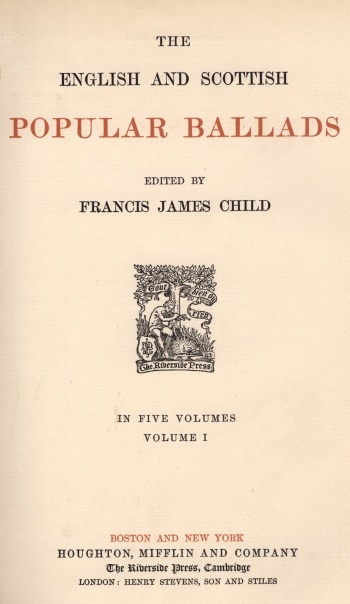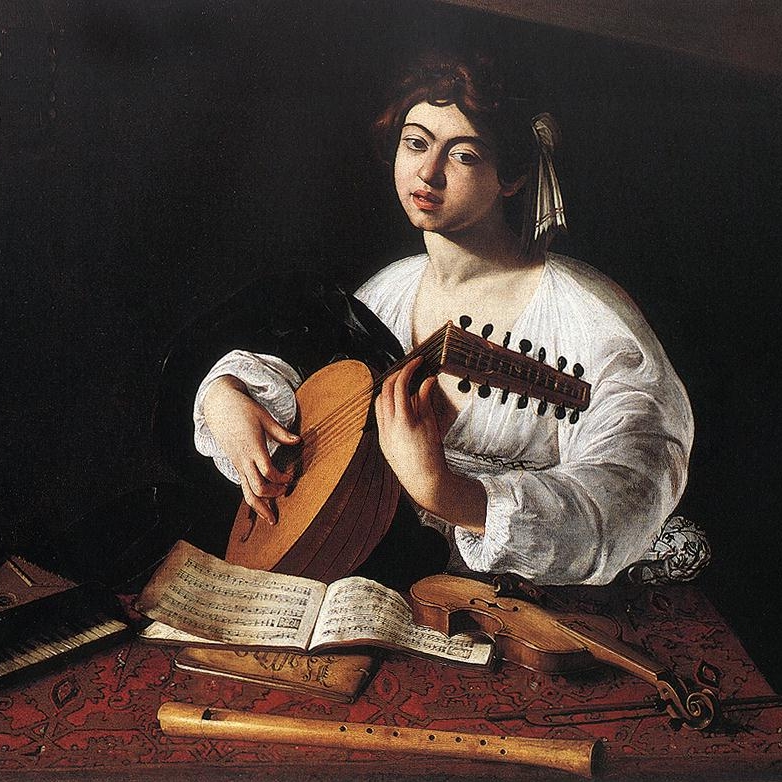In order to preserve the historical integrity of the ballads in this section they are presented in their original dialects, which span a broad range. These ballads have been passed down through the centuries from many different regions of Great Britain before appearing in print. A synopsis of each ballad, in modern American English, is provided to aid in ease of comprehension of the dialects.
As I cam in by Dunidier,
An doun by Netherha,
There was fifty thousand Hielanmen
A-marching to Harlaw.
As I cam on, an farther on,
An doun and by Balquhain,
Oh there I met Sir James the Rose,
Wi him Sir John the Gryme.
'O cam ye frae the Hielands, man,
An cam ye a' the wey?
Saw ye Macdonell an his men,
As they cam frae the Skee?'
'Yes, me cam frae ta Hielands, man,
An me cam a' ta wey,
An she saw Macdonnel an his men,
As they cam frae to Skee.'
'Oh was ye near Macdonnel's men?
Did ye their numbers see?
Come, tell to me, John Hielanman,
What micht their numbers be?'
'Yes, me was near, an near eneuch,
An me their numbers saw;
There was fifty thousan Hielanmen
A-marching to Harlaw.'
'Gin that be true,' says James the Rose,
'We'll no come meikle speed;
We'll cry upo our merry men,
And lichtly mount our steed.'
'Oh no, oh no,' says John the Gryme,
'That thing maun never be;
The gallant Grymes were never bate,
We'll try phat we can dee.'
As I cam on, an farther on,
An doun an by Harlaw,
They fell fu close on ilka side;
Sic fun ye never saw.
They fell fu close on ilka side,
Sic fun ye never saw;
For Hielan swords gied clash for clash,
At the battle o' Harlaw.
The Hielanmen, wi their lang swords,
They laid on us fu sair,
An they drave back our merry men
Three acres breadth an mair.
Brave Forbes to his brither did say,
Noo brither, dinna ye see?
They beat us back on ilka side,
An we'se be forced to flee.
'Oh no, oh no, my brither dear,
That thing maun never be;
Tak ye your good sword in your hand,
An come your wa's wi me.'
'Oh no, oh no, my brither dear,
The clans they are ower strang,
An they drive back our merry men,
Wi swords baith sharp an lang.'
Brave Forbes drew his men aside,
Sa,d Tak your rest a while,
Until I to Drumminnor send,
To fess my coat o' mail.
The servan he did ride,
An his horse it did na fail,
For in twa hours an a quarter
He brocht the coat o' mail.
Then back to back the brithers twa
Gaed in amo the thrang,
An they hewed doun the Hielanmen,
Wi swords baith sharp an lang.
Macdonell, he was young an stout,
Had on his coat o' mail,
An he has gane oot throw them a',
To try his han himself.
The first ae straik that Forbes strack,
He garrt Macdonell reel,
An the neist ae straik that Forbes strack
The great Macdonell fell.
An siccan a lierachie
I'm sure ye never saw
As wis amo the Hielanmen,
When they saw Macdonnel fa.
An whan they saw that he was deid,
They turnd an ran awa,
An they buried hin in Leggett's Den,
A large mile frae Harlaw.
They rade, they ran, an some did gang,
They were o' sma record;
But Forbes an his merry men,
They slew them a' the road.
On Monanday, at mornin,
The battle it began,
On Saturday, at gloamin,
Ye'd scarce kent wha had wan.
An sic a weary buryin
I'm sure ye never saw
As wis the Sunday after that,
On the muirs aneath Harlaw.
Gin ony body speer at you
For them ye took awa,
Ye may tell their wives and bairnies
They're sleepin at Harlaw.
The ballad The Battle of Harlaw appears in Volume III of The English and Scottish Popular Ballads, edited by Francis James Child. These volumes are in the public domain.

The Child Ballads are 305 traditional ballads from England and Scotland, and their American variants, anthologized by Francis James Child during the second half of the 19th century. ... Read more at Wikipedia.

Ballads were particularly characteristic of the popular poetry and song of the British Isles from the later medieval period until the 19th century. ... Read more at Wikipedia.